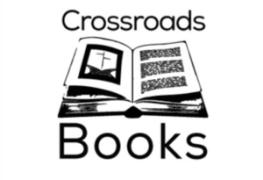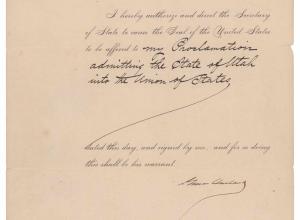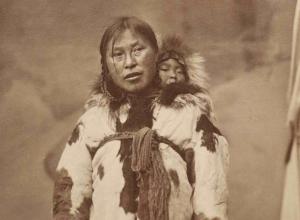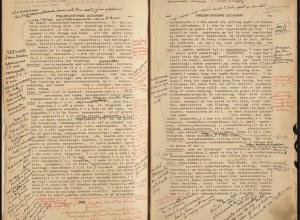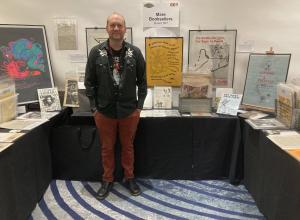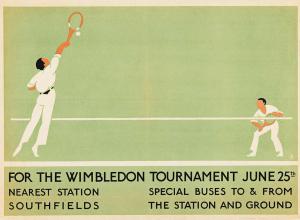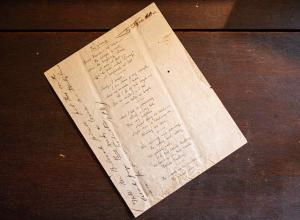Bright Young Librarians: Daryl Green
How did you get started in rare books?
It was a bit of a sideways step for me during my MA year at the University of York (UK); I had decided to take on some part-time work during my dissertation write up period in the summer of 2007 and landed an assistant librarian job at York Minster Library. The Minster Library was where I cut my librarian teeth: learning how to catalogue early and rare printed works, how to manage a collection within the environment in a historic (read: uncontrollable) building, etc. I went to full-time after my Master's dissertation (Medieval Studies) was finished and worked for another year and a half. Many a happy afternoon was spent that summer amongst the stacks of the Upper Hall Library, cataloguing and reporting ESTC books and losing myself in the moment; the aura of the old stacks, the sounds of the Minster Gardens, the smell of the books on wooden shelves, it was pretty idyllic. This was at a time when I was trying to decide if academia was the right thing for me, I had seen a number of my friends go on to happy career-starting positions but only after incredible amounts of time commitment and sacrifice. I saw special collections work as a way to stay connected to the primary materials and to the research community in a very real way, but also a career where I could punch out at 5 or 6 in the evening and have a life outside of work. I could also focus my academic interests into my subject specialities as a developing reference librarian, but still have the opportunity to delve into books, and the history surrounding them, from all centuries and all places; special collections work would allow me to be a specialist and a generalist at the same time.
Where did you earn your MLS/advanced degree?
I decided to head back to the States for my MLS, partly because I wasn't finished with the Midwest (where I grew up) and partly because there were more programs that offered specializations in rare books/special collections work in the States versus the UK. So, I started my degree at the University of Illinois, Urbana-Champaign, in the fall of 2009, with the plan to finish as quickly as I could to avoid racking up any more student debt than necessary and to jump back into the work force as quickly as possible. I also found a part-time job in UIUC's Rare Book & Manuscript Library, cataloguing on theQuick & Clean Project. I jumped in on the project as they were finishing up some continental imprints and then moving on to a whole swathe of annotated screenplays from 1950s and 60s Hollywood, and then afterwards on to processing their substantial incunabula collection, so the work and experience I got there was extremely varied and wonderful. I piled on the coursework thinking that I could probably finish in a year and-a-half, until a job posting came up at St Andrews in the spring of 2010 for a full-time rare books cataloguer; I interviewed successfully but convinced them to wait until I could finish my degree to start my contract. I sped up my coursework and took on some independent studies during the summer months (including a lovely bibliography seminar with Don Krummel) and managed to finish all of the degree requirements by July 2010, in effect completing the degree in less than a year!
What is your role at your institution?
I'm one of a pair of Rare Book Librarians here at St Andrews. The pair of us share all the facets of a rare books curator and play to each other's strengths. I started off as a rare books cataloguer, and still always have a book which needs cataloguing up on the block in front of my monitors (it's my bit of Zen for the day), and so a lot of what I do is manage the various cataloguing and intellectual control projects we have going on, including retro-conversion programmes, internships and processing new acquisitions. I also am a regular facet of the University's Book History MLitt as an instructor of Material Bibliography as well as a guest lecturer on several courses in the Schools of English, History and Art History. I also do my fair share of fielding enquiries from researchers and students, collections development (which has gotten fun recently due to a substantial grant for acquisitions from the Carnegie Trust!) and all the other fun bits that come with the job. I also am the creator and sometimes-editor/contributor of Echoes from the Vault the Special Collection Division's blog.
Favorite rare book / ephemera that you've handled?
I know that this can be hard for some people, but for me I've got a shining example of hairs standing on end, lightning strikes, founding moment from my halcyon days amongst the cornfields of Illinois that still haunts me. One of the collections of modern manuscripts that we were trialling MARC cataloguing on was a small collection of Arctic papers. I had the luck of pulling a manuscript copy for cataloguing of The North Georgia Gazette and Winter Chronicle which was produced and circulated in manuscript format by members of the first Parry Expedition for the North-West Passage while they were at their winter quarters in the Arctic; it was later published, in printed form, after the expedition's return to London under the title: North Georgia gazette, and Winter chronicle. Illinois' copy originally belonged to, and was copied out by, Charles Palmer, Midshipman on the H.M.S. Hecla and sometimes bard of the Parry expedition, while camped out at Winter Harbour on what is now called Melville Island in the Northwest Territories. A newspaper, copied out in hand, during an Arctic winter, in the cold and the dark, with uncertainty closing in around you on all sides; this manuscript oozed in atmosphere and history. Turnings its leaves, seeing the sometimes shaky hand, reading the stories, instantly took me to a Lovecraftian alien landscape full of monumental glaciers, everlasting twilight reflecting off of miles of polar-white landscapes and a small crew of two ships stranded in the midst of it all. That manuscript still gives me goosebumps.
What do you personally collect?
Being a student in two countries for the better part of a decade doesn't leave much money or room for collections of anything but work books and academic journals. However, we've recently been developing our photobook collections at St Andrews, and I've really enjoyed learning about the genre. I've decided to start collecting inter-war and post-WWII photobooks by Italian photographers; most of these are still pretty easy to attain on a librarian's salary and having an Italian wife and an excuse to regularly travel to Italian bookshops should make this good fun. I plan to start with Ferdinando Scianna, one of the first Italian Magnum photographers, who has got a pretty solid catalogue to go after.
What excites you about rare book librarianship?
The "aha" moment, that moment when you put the right book or manuscript in the right person's hands. The greatest joy of being a rare books librarian/curator is being the conduit through which people get in touch with early, fragile, sensitive or rare materials which, for necessary reasons, are usually kept behind very well closed doors. When I'm in a room with a group of first or second year undergraduates taking them through the history of the codex and skipping around from medieval psalters to incunabula to fine press works can be overwhelming for some, but when you put a first edition of Two stories printed by the hands of Virginia Woolf into the hands of an eager Woolf reader you see the sparks fly, when you let a budding medievalist turn the pages of a manuscript for the first time you see their eyes widen. Creating that connection, fostering that desire to continue to connect to our collections, and learning what other people can tell you about books held in your collections is what it's all about. Everything else about the job is great, but that part is sublime.
Thoughts on the future of special collections / rare book librarianship?
I think, by now, most libraries have realised that in an age of ever-increasingly homoginized research collections, special collections are what define one library from another. The role of the special collections librarian is to now not only preserve, curate, and develop collections under their care, but also to champion the institutions research strengths both to the home and the away crowd. I'd like to think we might be able to learn a bit from our 'main library' colleagues, though, and develop a more collaborative approach to several problems such as backlog cataloguing, electronic resource development, collections development and storage. Even though most of us special collections librarians are part of a large university or institutional library, we still operate, for most of the year (save that one special weekend in June for Americans, and those few days at the end of August for the Brits), on our own islands promoting our own collections and trying to shout to the world about them. If, instead, we could harness some of the good that comes out of collaboration, I think we'd be all the better for it: discussing regional collection strengths, developing digital resources collaboratively that provide access to a wider array of collections in more dynamic and impactful ways, and defraying the rising financial and environmental costs of collections storage across several institutions.
I'd also love to see more collaborative work which aims to engage contemporary artists with historic collections and archives. The output of artists in residence programs based in libraries and archives can really be electrifying and, in most cases, brings the collections to an audience that wouldn't normally be reached and encourages further engagement. One of the most stunning projects that I've seen recently (and no, this is not just me name-checking an East-Fifer) is the collaboration between film researcher Virginia Heath and musician King Creosote who drew on the motion picture resources from the National Library of Scotland & the Scottish Screen Archive to create A Century in Film: From Scotland With Love; watch it just as soon as you can.
Any unusual or interesting collection at your library you'd like to draw our attention to?
Oh, yes. A couple of really quirky birds are the Beveridge Collection and the Alchemy Collection. The personal collection of the Rev. John Beveridge donated to the University in the mid-20th century and has three main strengths which reflects the collectors interests: Norway, Esperanto and beekeeping. I'll repeat that: Norway, Esperanto and beekeeping. Fantastic! There are even some items in his collection which cross the boundaries, such as Norwegian Gazettes in Esperanto. The Alchemy Collection was assembled by John Read, professor of chemistry at St Andrews in the second quarter of the 20th century. Read was basically given an envelope full of cash and the remit to build a collection of books and manuscripts on the history of chemistry by the Department of Chemistry, a task which he not only worked at for the rest of his career, but which resulted in some magnificent early printed books and manuscripts (including early editions of Brunschwig, Ulstadius and manuscripts in the hand of Newton).
The collections here at St Andrews are fantastically deep and wide and historically under-exploited; our retro-cataloguing projects are finding wonderful pockets of books in the general reserve 17th and 18th century collections and feel like we've only begun to scratch the surface of what may lie beneath. One of the collections that I have my own "cataloguer's eye" on is the collection of John Sturgeon Mackay, mathematical master at the Edinburgh Academy until his death in 1914. This small but incredibly focussed collection of mathematical works features first editions of Euclid's works in several languages, etc. A nice little project that I hope I can find time for myself soon.
Any upcoming exhibitions at your library?
Well, currently St Andrews doesn't have much of a dedicated exhibition space for its Special Collections, due to redevelopment projects, etc. So we've really concentrated our curatorial efforts into our digital presence, to try and widen the impact of our collections across several user groups and the general public. To this extent we've expanded Echoes from the niche rare books blog that it started out as into an admittedly also niche, but very successful, blog highlighting items from all of our collections and with contributions from all of the Division's curators, as well as cataloguers, archivists and guest posts by academics and researchers. The blog, and the activities surrounding it, has been a nice outlet to express our curatorial voice and to reach more diverse audiences (from academics to hobby bakers and from artists to knitters) to than a local exhibition could. The last three years we've been running focussed year-long threads on bindings, illustrations and this year's star has been our historical how-to thread. We've got a few other digital resources coming down the pipe soon, so watch this space.
We do have a small, temporary exhibition facility in our historic King James Library which I'll be mounting a small display on Italian translator and Cardinal Daniele Barbaro in September in conjunction with an academic workshop coming to town, but the space and conditions limit the use of this space to the most temporary of exhibitions.







